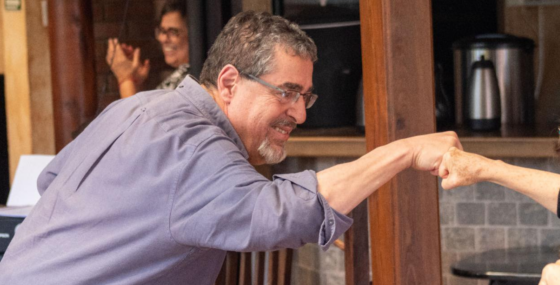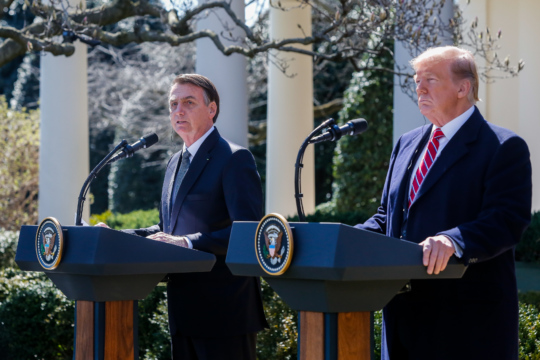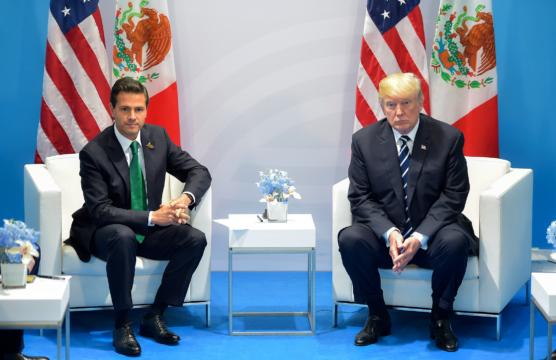
Are Tense Relations Harming Anti-Drug Cooperation?
A Latin America Advisor Q&A featuring experts’ views on intelligence cooperation between Ecuador and Mexico.
United States | President Emeritus & Senior Fellow, Inter-American Dialogue
Peter Hakim is president emeritus and a senior fellow at the Inter-American Dialogue. From 1993 to 2010, he served as president of the organization. Hakim writes and speaks widely on hemispheric issues and has testified more than a dozen times before the U.S. Congress. His articles have appeared in Foreign Affairs, Foreign Policy, New York Times, Washington Post, Miami Herald, Los Angeles Times, and Financial Times, and in newspapers and journals in Argentina, Brazil, Chile, China, Colombia, Canada, Cuba, El Salvador, Italy, Mexico, Peru, and Spain. From 1991 to 2001, he wrote a monthly column for the Christian Science Monitor, and now serves as a board member of Mexico’s Foreign Affairs Latinoamérica and editorial advisor to the Chilean-based América Economia.
Prior to joining the Dialogue, Hakim was a vice president of the Inter-American Foundation and worked for the Ford Foundation in New York, Argentina, Brazil, Chile, and Peru. He taught at MIT and Columbia, and has served on boards and advisory committees for the World Bank, Council on Competitiveness, Inter-American Development Bank, Canadian Foundation for Latin America (FOCAL), Partners for Democratic Change, Human Rights Watch, and the Council on Foreign Relations. He has been decorated by the governments of Brazil, Chile and Spain. Hakim earned a bachelor’s at Cornell University, a master’s in physics at the University of Pennsylvania, and a master’s in public and international affairs at Princeton University’s Woodrow Wilson School.
A Latin America Advisor Q&A featuring experts’ views on intelligence cooperation between Ecuador and Mexico.
A Latin America Advisor Q&A featuring experts’ views on what President Nayib Bukele’s second term will mean for El Salvador.
A Latin America Advisor Q&A featuring experts’ views on the biggest stories to watch for in the region in 2024.
It is hard to imagine exactly what kind of deal Bolsonaro and Trump, both anomalous, unconventional leaders, drawn to one another mainly by temperament and ideology, could strike with another. Could they really end up accomplishing what previous governments in both countries had failed to achieve? Could they forge an alliance between two countries that have long maintained a rather distant and often distrustful relationship?
Recent global developments offer substantial evidence that the so-called liberal or rule-based international order, set in place in the aftermath of World War II, is fast eroding with no replacement in sight. The important question now is how governments across the globe should be adjusting to the systemic changes taking place in world politics and the new risks they pose.
After little more than a year of tension-filled talks, US and Mexican negotiators have reached a preliminary agreement that would largely preserve, in both concept and content, the original NAFTA. But for both Mexico and Canada, the uncertain and painful renegotiation of NAFTA comes with high costs beyond the expected economic losses. Resolving the NAFTA dispute will not repair the damage Trump has inflicted on US relations with both Mexico and Canada.
A redução da influência dos EUA na América Latina não é apenas uma questão de política externa incorreta ou resultado de decisões subjetivas deste ou daquele político. Essa redução está ligada, muito mais, a mudanças na economia mundial, assim como aos efeitos catastróficos das políticas conduzidas pelos EUA.
Andrés Manuel López Obrador parece estar diciendo disparates. [La sustitución de la Organización de Estados Americanos por otro organismo] no va a suceder, al menos no en el corto plazo.




